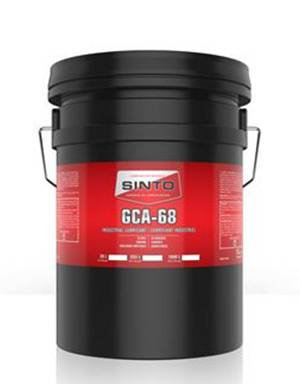دسمبر . 19, 2024 10:53 Back to list
hdpe conduit pipe
Understanding HDPE Conduit Pipe Advantages and Applications
High-Density Polyethylene (HDPE) conduit pipe has become a prominent choice in the construction and infrastructure industry due to its numerous advantages. This thermoplastic polymer is renowned for its durability, chemical resistance, and overall versatility, making it a preferred option for various applications, particularly in electrical and telecommunications projects. In this article, we will delve into what HDPE conduit pipe is, its benefits, applications, and the reasons behind its growing popularity.
What is HDPE Conduit Pipe?
HDPE conduit pipe is a type of piping specifically designed to protect electrical wiring and telecommunications cables from environmental factors. Made from high-density polyethylene, it is characterized by its strong, flexible, and rugged nature, which allows it to withstand external stresses while maintaining structural integrity. HDPE conduit pipes come in a variety of sizes and thicknesses to accommodate different cable types and installation requirements.
Key Advantages of HDPE Conduit Pipe
1. Durability One of the most significant advantages of HDPE conduit pipe is its remarkable durability. It is resistant to corrosion, impacts, and environmental stress, making it suitable for underground installations and high-traffic areas. The longevity of HDPE material can far surpass that of traditional materials like PVC or metal.
2. Chemical Resistance HDPE is resistant to a wide range of chemicals and substances, which is crucial in environments where exposure to harsh chemicals is possible. This resistance helps to prevent deterioration and damage, ensuring that the conduit remains functional for many years.
3. Lightweight and Flexible Compared to traditional piping materials, HDPE conduit is lighter, which significantly reduces transportation and installation costs. The flexibility of HDPE makes it easy to install in various configurations and tight spaces, adapting to the landscape and project requirements.
4. Cost-Effectiveness While the initial investment in HDPE conduit pipe may be higher than some other materials, its long life span and minimal maintenance requirements contribute to lower overall costs. The savings realized from reduced labor, fewer repairs, and replacements often justify the initial expenditure.
5. Environmental Benefits HDPE is a recyclable material, contributing to sustainable practices. Using HDPE conduit helps reduce the environmental footprint as it is manufactured with less energy consumption and various recycling options allow for the reuse of the material at the end of its life cycle.
hdpe conduit pipe

Applications of HDPE Conduit Pipe
HDPE conduit pipe is widely utilized across various sectors, enhancing its reputation as a versatile solution. Here are some common applications
- Telecommunications HDPE conduits are essential in shielding telecommunication cables, including fiber optics, from external damage and deterioration. Their flexibility allows for easy routing in crowded spaces.
- Electrical Installations Electricians frequently use HDPE conduits to protect electrical wiring in residential, commercial, and industrial settings. Its ability to withstand high-temperature environments makes it ideal for various electrical applications.
- Utility Services Water utilities often use HDPE conduits for water distribution and service pipelines. Its resistance to corrosion and ability to handle different pressure ratings make it suitable for onsite utility installations.
- Renewable Energy Projects With the rise of renewable energy solutions, HDPE conduit pipe is increasingly being used to encase cables in solar and wind energy installations, enhancing the durability and reliability of these systems.
- Infrastructure Development As urban landscapes evolve, HDPE conduit is also employed in road construction and other infrastructure projects, ensuring that utilities are protected and accessible.
Conclusion
In summary, HDPE conduit pipe is a robust and flexible solution that addresses various needs in modern infrastructure and utility applications. Its durability, chemical resistance, and environmental benefits make it an ideal choice among engineers and installers alike. As industries continue to prioritize sustainability and efficiency, the adoption of HDPE conduit pipe is likely to increase, supporting the growing demands of the construction and telecommunications sectors. Its proven performance in safeguarding essential cables and wiring underscores its value, ensuring that our electrical and communication infrastructures remain reliable in an ever-evolving world.
-
Durable PP Rigid Sheet: Lightweight, Chemical Resistant Solutions
NewsAug.21,2025
-
PVC Grey Sheet for Extraction: Chemical Resistant & Durable
NewsAug.19,2025
-
Durable PVC Pipe Fittings for Plumbing & Irrigation Needs
NewsAug.18,2025
-
HDPE Steel Belt Reinforced Spiral Corrugated Pipe | High Strength
NewsAug.17,2025
-
HDPE Pipe Fittings: Durable, Leak-Proof Solutions
NewsAug.16,2025
-
Premium CPVC Sheet: High-Temp & Chemical Resistant Solutions
NewsAug.15,2025

